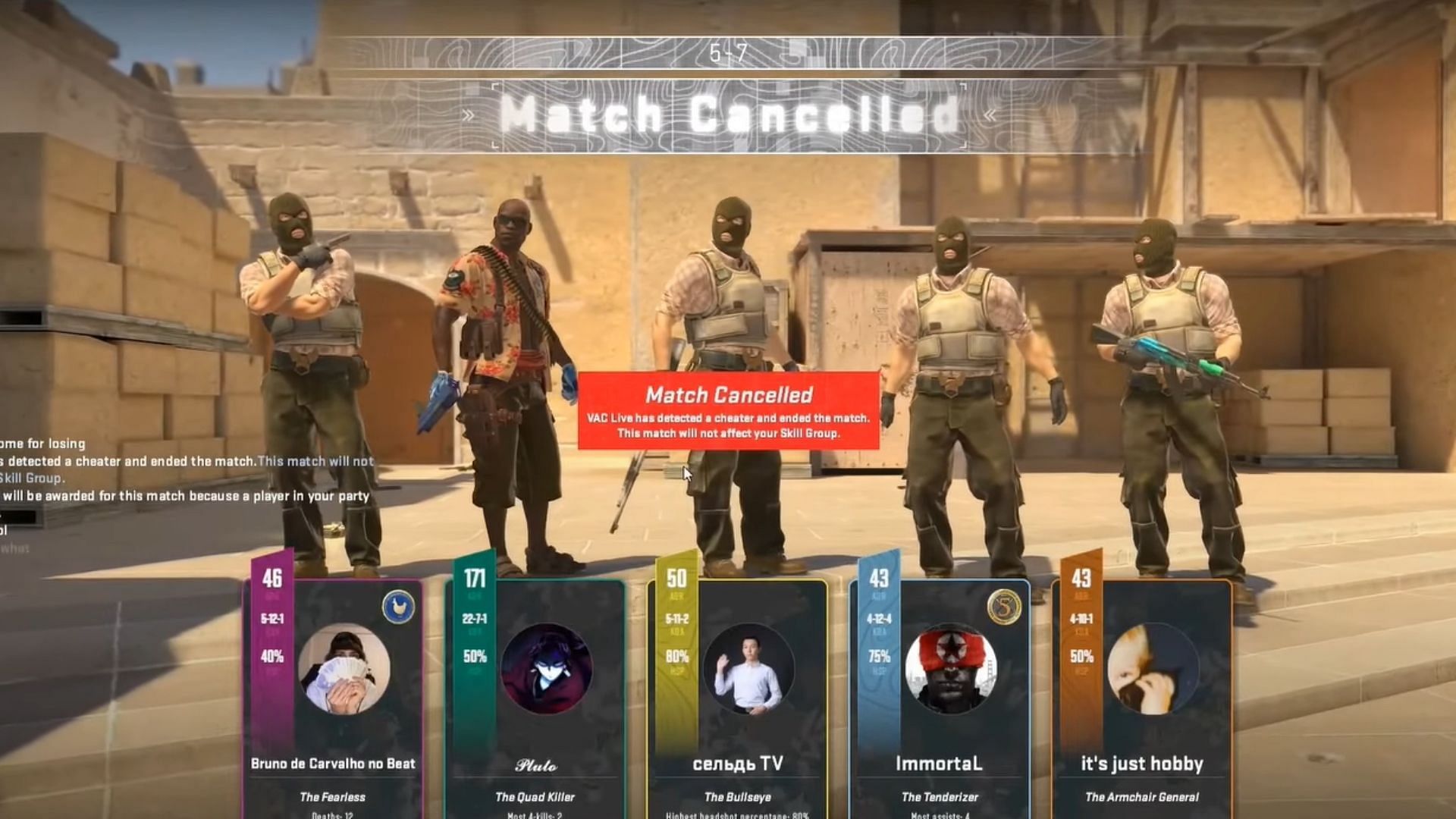Empowering Relationships: BVSM Marriage Services
Explore expert advice and support for successful marriages.
Why Getting a CS2 VAC Ban is Like Losing Your Favorite Gaming Controller
Losing a CS2 account to a VAC ban feels like having your favorite controller stolen—frustrating and inescapable. Discover why here!
The Emotional Impact of a CS2 VAC Ban: Similarities to Losing Your Favorite Controller
Experiencing a CS2 VAC ban can evoke a wave of emotions that closely parallels the sentiment of losing your favorite controller. Just as many gamers form a deep attachment to their controllers, which become extensions of their gaming identity, a CS2 VAC ban can represent the loss of a trusted companion in the virtual world. This abrupt disconnection not only takes away the thrill of competitive play but also tarnishes years of hard work and dedication. Players often reminisce about the countless hours spent honing their skills, making friends, and achieving victories, only to feel these memories overshadowed by the sudden ban. The psychological toll of feeling unfairly punished is compounded by a sense of loss similar to that of a cherished gaming device.
The emotional fallout from a CS2 VAC ban can manifest in various forms, much like the frustration of a broken controller that can no longer deliver precision when needed. Gamers may experience anger, sadness, and even grief over the disruption to their gaming routine. The sense of betrayal from the game's mechanics, which seem to turn against them, can lead to a broader existential crisis about trust within the gaming community. Players might find themselves comparing the loss of their gaming privileges to losing a treasured piece of equipment, invoking feelings of nostalgia for the seamless gameplay and victories they once enjoyed. This correlation underscores the deep emotional investment players have in their online personas and the digital assets they acquire.

Counter-Strike, often abbreviated as CS, is a popular first-person shooter game that pits teams of terrorists against counter-terrorists in a series of objective-based missions. Players can enhance their in-game communication with csgo chat binds, allowing for quicker and more efficient coordination during intense matches.
Understanding VAC Bans in CS2: Why It Feels Like a Game Over
In the realm of competitive gaming, VAC bans (Valve Anti-Cheat bans) have become a notorious point of contention, especially for players of Counter-Strike 2 (CS2). When a player receives a VAC ban, it effectively renders their account unusable in any matchmaking games, which can feel akin to a game over screen in the gaming world. The reasons for these bans can range from using cheats, hacks, or any third-party software that alters game mechanics. Understanding the implications of receiving a VAC ban is crucial, as it not only impacts individual play but can also tarnish a player's reputation within the community.
The psychological effect of a VAC ban can be quite severe. Many players invest significant time and effort in honing their skills and building their ranks, only to face the devastating consequence of a ban that feels unwarranted.
“It’s like waking up from a dream to find you’ve lost everything,”an avid player might say, highlighting the emotional weight of this issue. With community discussions often swirling about the fairness and accuracy of the VAC system, it’s important for players to recognize how to protect themselves from potential bans and to also understand the process of appealing a ban when they feel it is unjustly applied. Awareness and responsible gaming practices are key to not reaching that dreaded game over moment.
How to Recover from a CS2 VAC Ban: Tips for Moving Forward
Receiving a CS2 VAC ban can be disheartening, especially for dedicated players. The first step toward recovery is understanding the reasons behind the ban. VAC stands for Valve Anti-Cheat, and it detects cheats, hacks, or tampered game files. Reviewing your gameplay and any mods used can help you identify potential issues. If you believe your ban was a mistake, consider submitting a support ticket to Valve, providing as much detail as possible to support your case.
Moving forward after a CS2 VAC ban involves both reflection and action. Here are some tips to help you recover:
- Reassess your Game Practices: Ensure you are playing fairly and refrain from using unauthorized third-party programs.
- Explore Other Games: While waiting out the ban, consider exploring new games to keep your skills sharp and maintain your gaming passion.
- Community Engagement: Join forums and communities to share experiences with others who have faced similar setbacks and learn from their journeys.